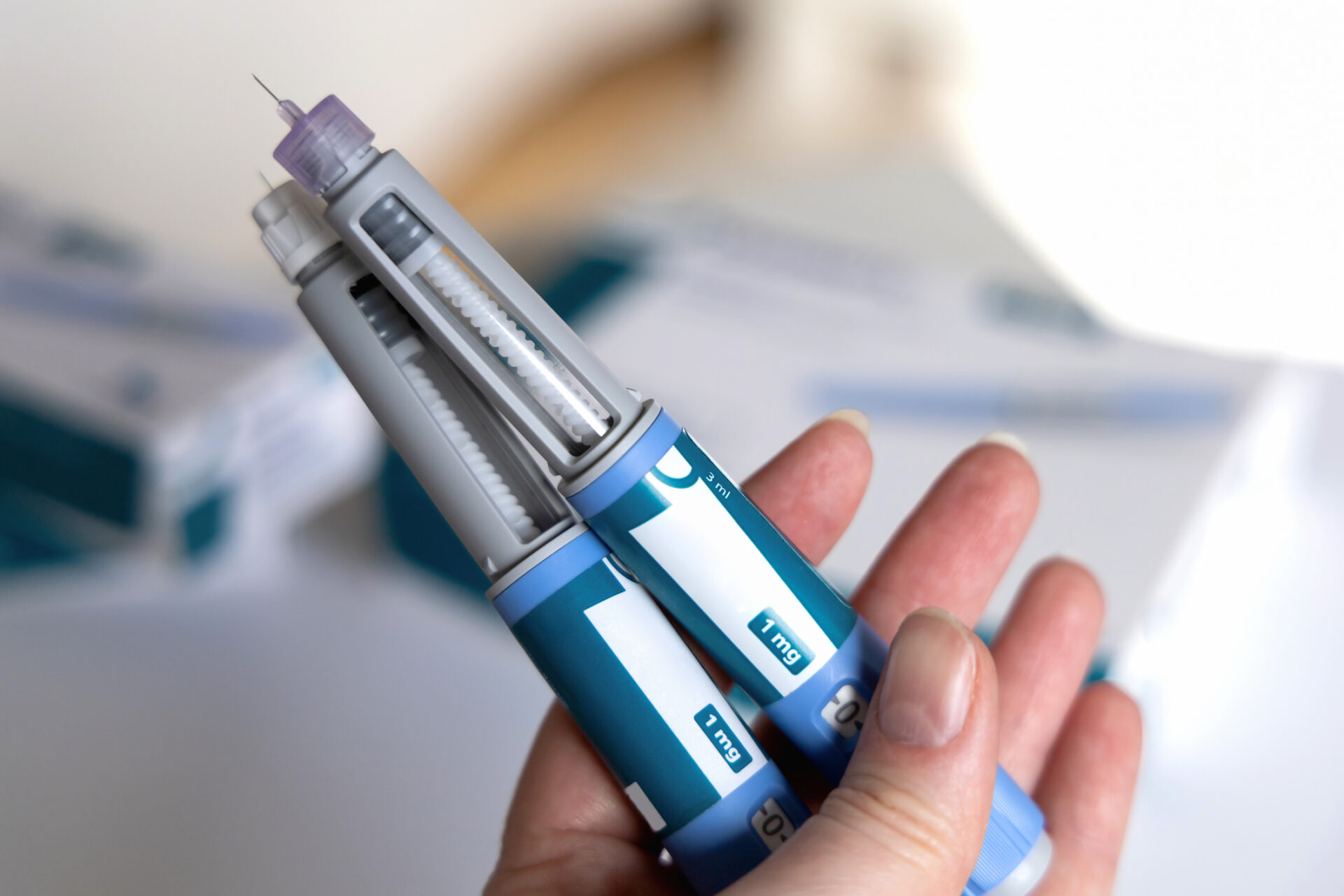In recent years, semaglutide has gained considerable attention as an innovative drug for the treatment of obesity. This pharmacological agent, initially developed for the management of type 2 diabetes mellitus, has shown promising results in weight loss, sparking interest and debate in medicine. In this article, we will explore the characteristics of Semaglutide, its mechanism of action, benefits for weight loss, and side effects.
What is Semaglutide, and what is it used for?
Semaglutide is a GLP-1 (glucagon-like peptide-1) receptor agonist developed for treating type 2 diabetes. GLP-1 is a hormone produced by the gut that plays a crucial role in regulating appetite and glucose metabolism: it increases insulin secretion and reduces glucagon production, helping to regulate blood sugar levels. Due to its GLP-1 agonist action, Semaglutide also helps to slow gastric emptying and thus prolong the feeling of satiety after meals. This leads to reduced caloric intake and, consequently, weight loss.
Semiaglutide in the treatment of obesity
For this reason, Semaglutide has also recently been approved for the treatment of obesity due to its effects on weight loss. Several clinical trials have demonstrated its effectiveness in promoting significant weight loss in obese patients. In a 2021 study published in the New England Journal of Medicine, participants treated with semaglutide lost an average of about 15 percent of their body weight, compared with a loss of 2.4 percent in the placebo group. The drug has been approved for treating obesity by major regulatory authorities, including the FDA in the United States and the EMA in Europe in June 2021 and January 2022, respectively.
Side effects and expert recommendations
Semaglutide has been a drug on the market for years, first approved by the FDA in 2018 and by the EMA in 2019 for the treatment of type 2 diabetes mellitus. However, this drug has become the star of a weight loss fad, resulting in an exponential increase in demand. This has led some people to consider it a quick fix for losing weight by using it exclusively for cosmetic reasons. Still, it is an impactful molecule on the body that can only be taken under medical advice and monitoring.
Experts point out that taking Semaglutide alone does not necessarily result in weight loss if a healthy diet and lifestyle do not accompany it. In addition, in the majority of countries where its use for weight control has been approved, for it to be prescribed, the patient must have actual health problems related to his or her weight; the desire to lose weight is not enough.

The most frequent side effects of semaglutide are mild and tend to disappear over time. Initially, the sensation of fullness may be perceived as uncomfortable, accompanied by nausea and a sense of heaviness. Therefore, treatment generally begins with a low dose, gradually increasing to minimize gastrointestinal side effects. However, misuse can cause severe damage to the body, such as excessive weight loss with negative metabolic relapse, but also detrimental effects on the patient’s thyroid gland and psyche. Therefore, providing one’s physician with a complete picture of their medical history is essential.
Semaglutide’s scarcity and other GLP-1 analogs
In recent times, the increasing demand for semaglutide has led to a shortage of this drug in several countries. The drug’s popularity not only among diabetic patients but also among those seeking weight loss solutions has put pressure on suppliers and led to delays in distribution and difficulties in meeting global demands.
To address this deficiency, especially to meet the needs of diabetic patients who require constant care, alternatives such as liraglutide and dulaglutide, two other GLP-1 analogs, can be considered. Another option is metformin, a drug commonly used for type 2 diabetes that can be combined with GLP-1 analogs to optimize glycemic control and support weight loss. However, treatment choices should always be tailored to the patient’s specific needs and condition.
The supply of Semaglutide
At Flarer, we are dedicated to providing high-quality ingredients for the pharmaceutical industry, including active ingredients such as Semaglutide. With over 30 years of experience and partnerships with certified suppliers, we guarantee products that meet the highest quality and safety standards. We offer customized solutions to overcome supply chain challenges and comply with international regulations.
For more information about our products and services, please contact us.
